Related Research Articles
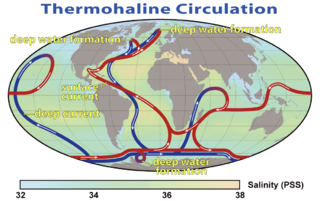
Oceanography, also known as oceanology, sea science, ocean science, and marine science, is the scientific study of the ocean. It is an Earth science, which covers a wide range of topics, including ecosystem dynamics; ocean currents, waves, and geophysical fluid dynamics; plate tectonics and seabed geology; and fluxes of various chemical substances and physical properties within the ocean and across its boundaries. These diverse topics reflect multiple disciplines that oceanographers utilize to glean further knowledge of the world ocean, including astronomy, biology, chemistry, geography, geology, hydrology, meteorology and physics. Paleoceanography studies the history of the oceans in the geologic past. An oceanographer is a person who studies many matters concerned with oceans, including marine geology, physics, chemistry, and biology.
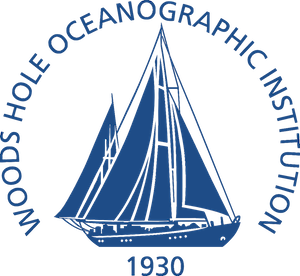
The Woods Hole Oceanographic Institution is a private, nonprofit research and higher education facility dedicated to the study of marine science and engineering.
The Rosenstiel School of Marine, Atmospheric, and Earth Science is the University of Miami's academic and research institution for the study of oceanography, atmospheric, and earth sciences. The Rosenstiel School is located 8 miles (13 km) east from the University of Miami's main Coral Gables campus on Virginia Key in Miami, Florida, United States.

The National Oceanography Centre Southampton (NOCS) is a centre for research, teaching, and technology development in Ocean and Earth science. NOCS was created in 1995, jointly between the University of Southampton and the UK Natural Environment Research Council and is located within the port of Southampton at a purpose-built dockside campus with modern facilities. In 2010 the university and NERC components demerged, and the NERC-managed component became the National Oceanography Centre. The two components of NOCS continue close collaboration through the jointly run Graduate School, shared research facilities and laboratories, complementary research groups, and many joint research grants and publications. The university component “Ocean and Earth Science, National Oceanography Centre Southampton” (OES) is part of the Faculty of Environmental and Life Sciences, (FELS). It was ranked 46th in the world for Earth and Marine Sciences by the QS World University Rankings in 2019.
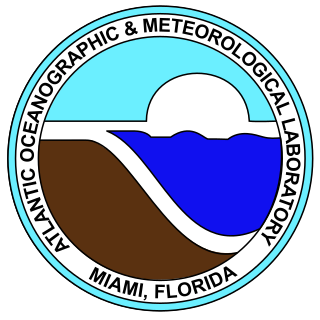
The Atlantic Oceanographic and Meteorological Laboratory (AOML), a federal research laboratory, is part of the National Oceanic and Atmospheric Administration's (NOAA) Office of Oceanic and Atmospheric Research (OAR), located in Miami in the United States. AOML's research spans tropical cyclone and hurricanes, coastal ecosystems, oceans and human health, climate studies, global carbon systems, and ocean observations. It is one of seven NOAA Research Laboratories (RLs).

Marine engineering is the engineering of boats, ships, submarines, and any other marine vessel. Here it is also taken to include the engineering of other ocean systems and structures – referred to in certain academic and professional circles as "ocean engineering". After completing this degree one can join a ship as an officer in engine department and eventually rise to the rank of a chief engineer. This rank is one of the top ranks onboard and is equal to the rank of a ship's captain. Marine engineering is the highly preferred course to join merchant Navy as an officer as it provides ample opportunities in terms of both onboard and onshore jobs.

The Department of Atmospheric and Oceanic Sciences of McGill University is the largest university atmospheric-oceanic sciences group in Canada. In 2012, it has 11 Faculty and 6 Associate Faculty members, 5 support staff, 14 research associates and postdoctoral fellows, and 31 graduate students. It is known worldwide, in particular for weather radar research and Arctic studies. It has operated the second oldest weather observatory in Canada since 1862.
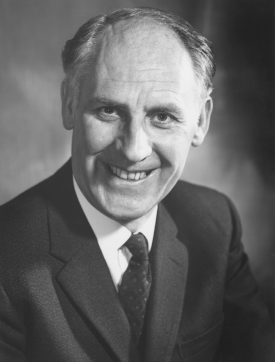
Raymond Hide was a British physicist, who was a professor of physics at the University of Oxford and, since 2000, senior research investigator at Imperial College, London.
Sverdrup Gold Medal Award – is the American Meteorological Society's award granted to researchers who make outstanding contributions to the scientific knowledge of interactions between the oceans and the atmosphere.
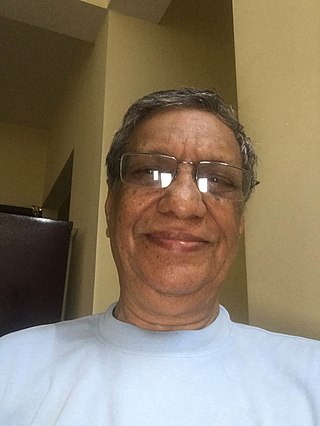
Prem Chand Pandey is an Indian space scientist, planetary scientist, and academic in the fields of satellite oceanography, remote sensing, atmospheric science, the Antarctic and climate change, and also he is the founding director of the National Centre for Polar and Ocean Research (NCPOR).
Klaus Wyrtki was an American physical oceanographer.
Professor Percival Albert "Peter" Sheppard CBE FRS was a Meteorologist at Imperial College, London from 1952 to 1974 and thereafter emeritus professor.
Harry Leonard Bryden, FRS is an American physical oceanographer, professor at University of Southampton, and staff at the National Oceanography Centre, Southampton. He is best known for his work in ocean circulation and in the role of the ocean in the Earth's climate.
John Graham Shepherd CBE FRS is a British Earth system scientist, Emeritus Professor at University of Southampton, and a former director of the National Oceanography Centre, Southampton. He has worked on a wide range of environment-related topics, including the transport of chemical tracers in the atmospheric boundary layer and in the deep ocean, the management of marine fish stocks, and the dynamics of the Earth system. More recently he led a comprehensive review of geoengineering for the Royal Society.
John Charles Marshall, FRS is a British oceanographer and academic. He is the Cecil and Ida Green Professor of Oceanography in the Department of Earth, Atmospheric and Planetary Sciences at the Massachusetts Institute of Technology (MIT). He is also an adjunct senior research scientist in the Department of Applied Physics and Applied Mathematics at Columbia University.

CSIRO Oceans and Atmosphere (O&A) (2014–2022) was one of the then 8 Business Units of the Commonwealth Scientific and Industrial Research Organisation (CSIRO), Australia's largest government-supported science research agency. In December 2022 it was merged with CSIRO Land and Water to form a single, larger Business Unit called simply, "CSIRO Environment".

Trevor John McDougallFAGU is a physical oceanographer specialising in ocean mixing and the thermodynamics of seawater. He is Emeritus Scientia Professor of Ocean Physics in the School of Mathematics and Statistics at the University of New South Wales, Sydney, Australia, and is Past President of the International Association for the Physical Sciences of the Oceans (IAPSO) of the International Union of Geodesy and Geophysics.
The Underwater Association (UA) was a research association focused on the conduct of research underwater by diving scientists and archaeologists. It was established by a group of UK scientists in Malta in 1966 to assist in the organisation and publication of British diving science. Membership grew to over 400, with approximately one third joining from outside the UK. From 1972 to 1979 the UA published a Code of Practice for scientific diving. This was expanded in 1987 and 1990 to form the UNESCO Code of practice. Membership declined in the late 1980s, and the UA merged with the Society for Underwater Technology in 1992.
References
- 1 2 3 "Professor John Woods". National Oceanographic Laboratory. Archived from the original on 18 October 2015. Retrieved 18 August 2015.
- ↑ "Emeritus Professor JohnWoods-Faculty of Engineering, Department of Earth Science & Engineering". Imperial College London. Retrieved 18 August 2015.